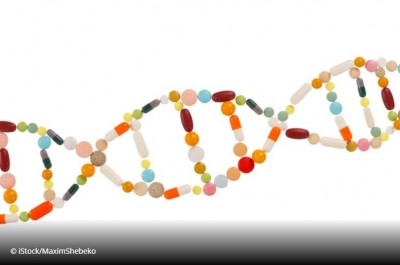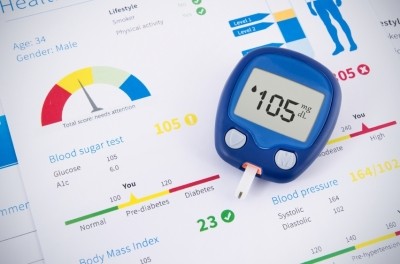Vitafoods Europe 2018: Preview
Nutrigenomics 'driving the next growth stage' as innovation recognised in survey

New personalised assessment technologies were identified as a core trend for the future, as the survey—specially commissioned by the organisers of Vitafoods Europe—revealed provenance and traceability (19%) followed closely behind in popularity.
The issues of transparency (18%), and sustainability (11%) also resonated with the industry as corporate and social responsibility look to be key themes ahead of this year’s Vitafoods in Geneva, according to the 208 nutrition industry representatives surveyed.
“Personalised assessments are already driving the next stage of growth for the industry. For example, quick blood panels can reveal nutritional deficiencies, some of them in a few hours,” said Monica Feldman, president of Consumer Health Strategy.
“Major advances have been made in nutrigenomic technology, and nutrition companies are increasingly responding to the opportunities. However, there is a lot more to learn to fully provide a reliable picture of nutrition and the role of genetics.”
Industry partnerships
Recent collaborations struck that have personalised nutrition at the forefront include the welcome afforded to BASF as the newest member of a consortium founded by TNO and Wageningen University & Research.
Only last month, François Scheffler, head of BASF Global Human Nutrition spoke of using “integrated approaches,” to “shape the future,” and “foster the progress of personalized nutrition and health”.
The deal was preceded by Johnson & Johnson’s collaboration with gut microbiome analysis firm DayTwo back in Feb 2017.
DayTwo, based in Israel, currently offers a personalised nutrition recommendation product, based on a user’s medical history and gut microbiome analysis.
Users must provide a stool sample for the analysis, with kits currently shipping in Israel, and on pre-order in the US.
According to the survey, 14% of respondents said nutrigenomics would be a key trend over the coming year – up from 8% a year ago.
The jump in interest has led to an expansion of opportunities at Vitafoods, where experts will be on hand to offer personalised dietary advice created by nutrigenetics and nutrigenomics will form key topics of the interactive personalised nutrition workshop.
Male and female targeting
The issue of personalisation and tailored communications also extend to gender-targeted marketing of nutrition products.
Results from the survey suggest almost half (46%) of those surveyed said their companies would adopt more gender-neutral marketing over the next ten years.
Additional responses compiled found 11% said there would be more marketing aimed at women, and 5% said there would be more marketing aimed at men.
The findings have much relevance to such sectors as sports nutrition and nutricosmetics, where Dr Annegret Nielsen, senior consultant at analyze & realize GmbH, recently spoke of the interchanging roles between men and women.
“For example, we’re starting to see men using cosmetics to improve skin function and appearance,” she said.
“They’re also showing more interest in optimising personal fitness and health. In future they will more actively choose nutrition products that suit their needs.”
Is gender-neutral preferred?
These observations could also be applied to sports nutrition products – once the domain of male bodybuilders and athletes.
One example is Bio Synergy’s ‘Active Woman’ product range, one gender-specific product launched back in 2012.
The product range, which includes a pre-workout supplement, post-workout recovery shake, concentrated sports drink and several weight loss supplements, suggests there is a healthy audience that demand products and formulations that suit their health and fitness needs.
Despite this success, Nicoleta Pasenic, regulatory affairs associate at Pen & Tec consulting expressed reservations.
“Traditionally, most marketing in relation to food and wellness has been targeted towards females, as they’re seen as more health-conscious,” she said.
“However, it now seems that marketing to one gender is starting to receive negative feedback, with consumers feeling more comfortable with gender-neutral products instead.”















